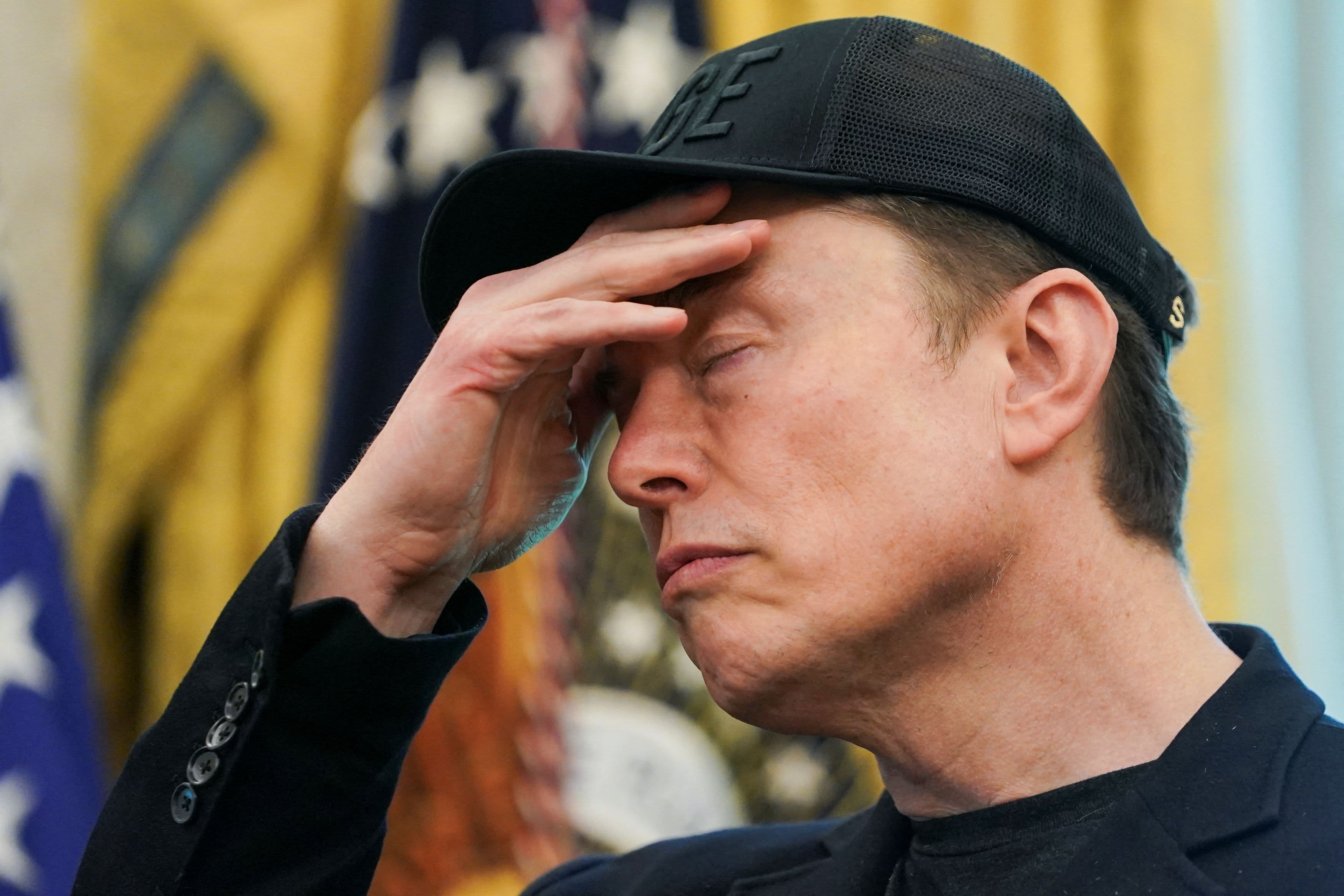Tesla Shares Slide as Musk-Trump Clash Overshadows Weak Q2 Delivery Outlook
Tesla Shares Slide as Musk-Trump Clash Overshadows Weak Q2 Delivery Outlook
By
Leah Rosenfeld
Last updated:
July 2, 2025
First Published:
August 3, 2025

Photo: CNBC
Tesla Stock Takes a Hit Ahead of Q2 Results
Tesla shares fell sharply this week, dropping 7% from Friday’s closing price of $323.63 to $300.71 by Tuesday’s close, just days before the company is scheduled to report its second-quarter vehicle delivery numbers.
The decline follows renewed political tensions involving CEO Elon Musk and former President Donald Trump, as well as investor anxiety over weakening sales and potential threats to key government subsidies that Tesla relies on.
Q2 Deliveries: Analysts Predict a Steep Drop
Wall Street expectations for Tesla’s Q2 performance are not encouraging. Analysts polled by FactSet forecast approximately 387,000 vehicle deliveries, a 13% drop from the nearly 444,000 units Tesla delivered in the same period last year.
Prediction market Kalshi suggests the actual figure may be even lower, with traders estimating around 364,000 units.
This anticipated slump comes despite the company's recent buzz over its robotaxi pilot in Austin, Texas, where Musk announced Tesla’s first driverless vehicle delivery to a customer—a move that briefly lifted investor sentiment in late June.
Political Firestorm: Musk vs. Trump
The stock’s downward trajectory accelerated after Musk publicly criticized the One Big Beautiful Bill Act, a sweeping federal spending package championed by Donald Trump. The legislation, heading for a final House vote, offers substantial tax breaks to wealthier Americans while reducing funding for social programs such as Medicaid and food assistance.
While Musk didn’t object to those specific cuts, he took to X (formerly Twitter) to warn the bill would balloon the U.S. deficit and lift the debt ceiling unnecessarily. The Congressional Budget Office estimates the bill could add $3 trillion to national debt over the next decade.
Musk has also raised concerns about provisions in the bill that would slash hundreds of billions of dollars from renewable energy initiatives, including a phase-out of EV tax credits. According to Energy Innovation, this could reduce electric vehicle sales by 100,000 units annually by 2035, directly threatening Tesla’s long-term market share.
Ripple Effects on Tesla’s Energy Business
Beyond vehicles, the proposed federal cuts could also significantly impact Tesla Energy, the company’s growing business segment focused on solar products and energy storage. The same report from Energy Innovation projects the bill would eliminate over 350 cumulative gigawatts of renewable energy development over the next decade, potentially curbing demand for Tesla’s solar and battery systems.
Trump Fires Back: “He Could Lose a Lot More”
At a press briefing, Trump responded bluntly to Musk’s opposition: “He’s upset that he’s losing his EV mandate… but he could lose a lot more than that.” This was widely interpreted as a warning that Musk’s companies could face reduced access to federal subsidies, contracts, and incentives.
And that warning carries weight. Since 2008, Musk’s aerospace venture SpaceX has received more than $22 billion in federal contracts, according to FedScout, including deals with NASA, the U.S. Air Force, and Space Force.
Tesla’s Dependency on Regulatory Credits
Tesla’s financials have long benefited from automotive regulatory credits—environmental incentives earned from selling zero-emission vehicles, which other automakers can purchase to meet their emissions obligations.
According to an analysis by FedScout CEO Geoff Orazem, Tesla has generated $11.8 billion in regulatory credit revenue since 2015. These credits are high-margin, meaning they flow directly to the company’s net income. In fact, regulatory credits accounted for roughly 60% of Tesla’s net income in Q2 2024.
With potential legislative changes threatening to phase out such incentives, Tesla’s reliance on these credits could become a financial vulnerability.
Final Thoughts
As Tesla prepares to report its Q2 delivery numbers, the company faces mounting headwinds—from slowing sales and policy changes to political entanglements. Musk’s high-profile clash with Trump comes at a sensitive time, with the electric vehicle market under pressure and investor focus shifting toward profitability and resilience.
While Tesla remains a dominant force in the EV space, the next few quarters could test its adaptability more than ever. Investors will be watching closely—not just for delivery numbers, but for how the company navigates an increasingly complex regulatory and political landscape.
Popular articles
Subscribe to unlock premium content
Global Cultures and the Hidden Drivers of Productivity and Happiness

The Future of Personalized Medicine

Digital Nomads and the New Global Economy

Global Cultures and the Hidden Drivers of Productivity and Happiness

The Future of Personalized Medicine

Global Cultures and the Hidden Drivers of Productivity and Happiness









